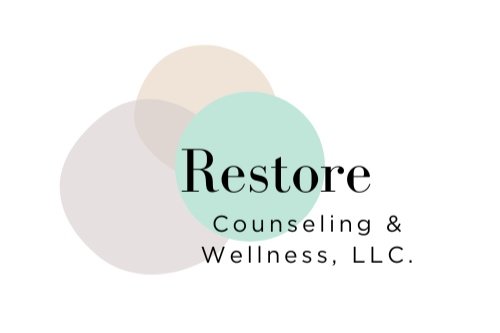How Therapy Helps Us Heal
How Therapy Helps Us Heal: A Theory of Change
By Julie Smead, LPC
Have you ever wondered why certain situations trigger intense emotions, anxiety, or body responses—even when you “know” you’re safe? Or why healing from trauma isn’t just about “moving on” or “thinking positively”?
Understanding how trauma affects the brain and body gives us a powerful lens for healing. One helpful framework is the Theory of Change in Counseling—a way of explaining how therapy helps us process the past, make sense of our experiences, and move forward with more peace and clarity.
Your Brain’s Natural Healing System
We all have a built-in information processing system. When things are working well, our minds and bodies naturally digest difficult experiences. We think about them, talk them through, feel the emotions, and maybe even dream about them. Over time, we’re able to file those events away in long-term (explicit) memory, along with a coherent story:
“That was then, this is now.”
We may even walk away with a sense of strength or growth—“I survived. I’m okay. I’m safe now.”
But sometimes, especially when experiences are overwhelming, traumatic, or chronic, that natural system gets overloaded.
When Experiences Stay Stuck
If your nervous system didn’t have the support or safety it needed at the time of a traumatic event, the experience may not have been fully processed. Instead, your brain stores the fragments—images, emotions, body sensations, beliefs—out of sequence, and outside of your conscious awareness. These fragments live in implicit memory, where they can get triggered by current experiences that resemble the past.
Implicit memory is a type of memory that is stored outside of conscious awareness. Unlike explicit memory—which involves facts and events you can clearly recall and talk about—implicit memory influences your feelings, behaviors, and body responses without you necessarily realizing why.
This is why trauma symptoms often don’t “make sense” to us logically. The body remembers what the mind has buried.
We understand current symptoms—whether it's anxiety, depression, dissociation, or relationship challenges—not as flaws or disorders, but as signals from an unprocessed past.
What Therapy Does
Therapy creates the safe conditions your brain and body needed at the time of the trauma—but didn’t have. In the safety of the therapeutic relationship, your nervous system can begin to relax. Together, we gently revisit the unprocessed memories and experiences—not to relive them, but to process them, make sense of them, and move them into explicit memory where they belong.
When this happens, people often say:
“It’s like I can finally say it’s over.”
“I remember it, but it doesn’t overwhelm me anymore.”
Healing is about more than remembering. It’s about restoring the ability to live fully in the present.
Key Elements of Healing
At Restore Counseling & Wellness, we approach healing from a trauma-informed and integrative lens. Here are a few essential pieces of the process:
🔹 Understanding Survival Strategies
We honor the adaptive strategies you used to survive—whether it was shutting down, staying busy, people-pleasing, or disconnecting from your body. These strategies were wise at the time, but they may no longer be serving you.
🔹 Releasing Survival Mode
We help you free the parts of yourself that are still operating in “survival,” allowing your core self to lead with more calm, clarity, and trust.
🔹 Telling Your Story in a Relaxed Body
Rather than just talking about your past, we support you in experiencing safety while reflecting on it—so that your body learns the story has changed.
🔹 Repairing Attachment Wounds
For survivors of complex trauma, the symptoms are often diffuse, the memories blurry, and the triggers confusing. Therapy becomes a place to explore not only the events themselves, but also the unmet needs of childhood and how those wounds are showing up in adult relationships.
The therapist-client relationship serves as a new, secure attachment—offering the experience of being truly seen, heard, and valued.
What Makes Healing Possible?
While therapy is not one-size-fits-all, most meaningful healing includes:
Hope – the belief that things can get better
Relationship – a safe, attuned connection with your therapist
Techniques – tools for nervous system regulation, memory processing, and meaning-making
Resourcing – building internal and external supports to help you stay grounded
You Can Heal
Whether you're struggling with symptoms that don't seem to have a clear cause, or you're aware of past trauma but don’t know where to start, we want you to know that healing is possible.
At Restore Counseling & Wellness, we create a safe, compassionate space where your brain and body can do what they were designed to do: heal.
📞 We’re here when you’re ready.
Just text “Ready” to 757-932-0587 and we will reach out to schedule your first visit.
